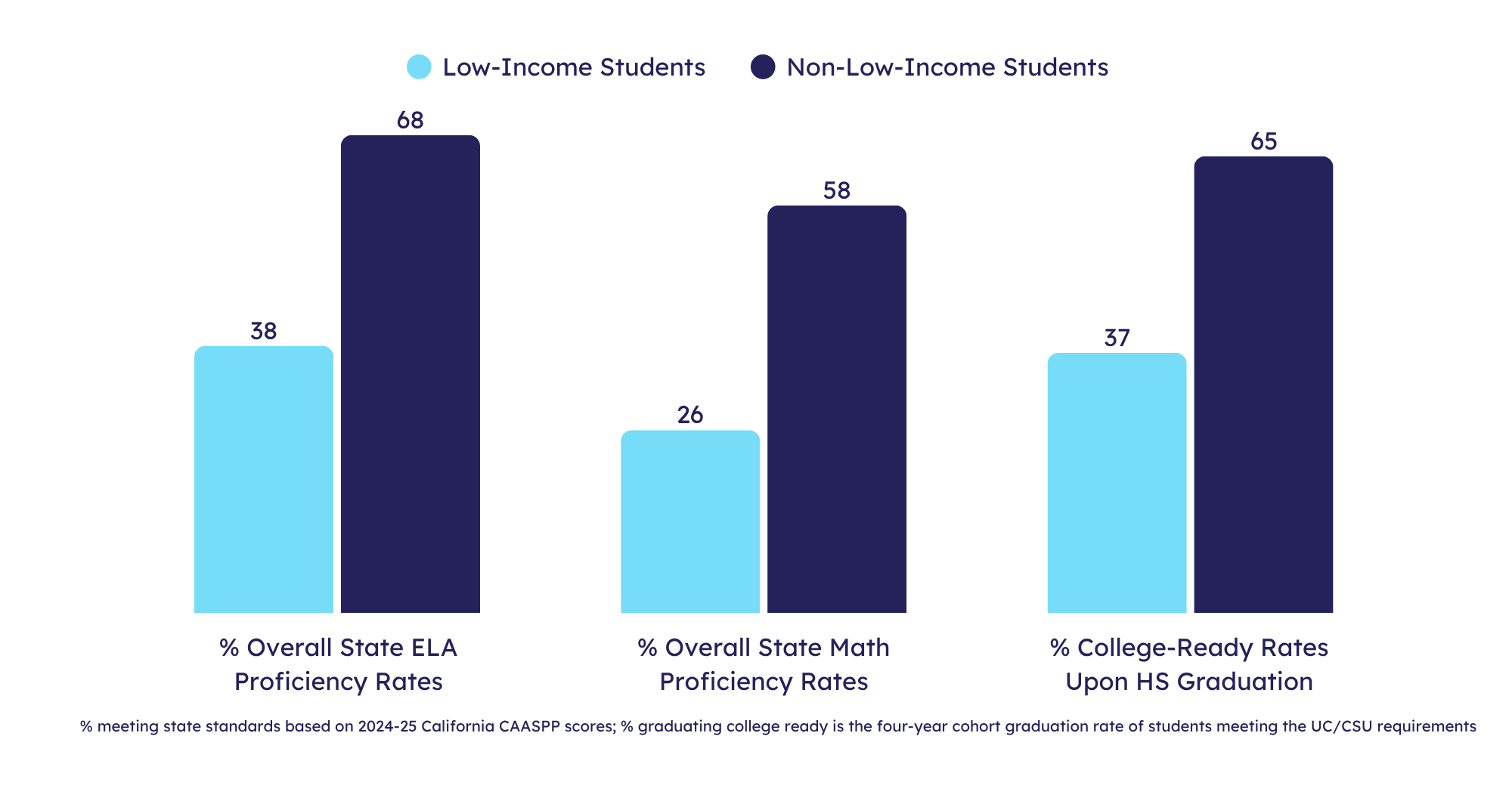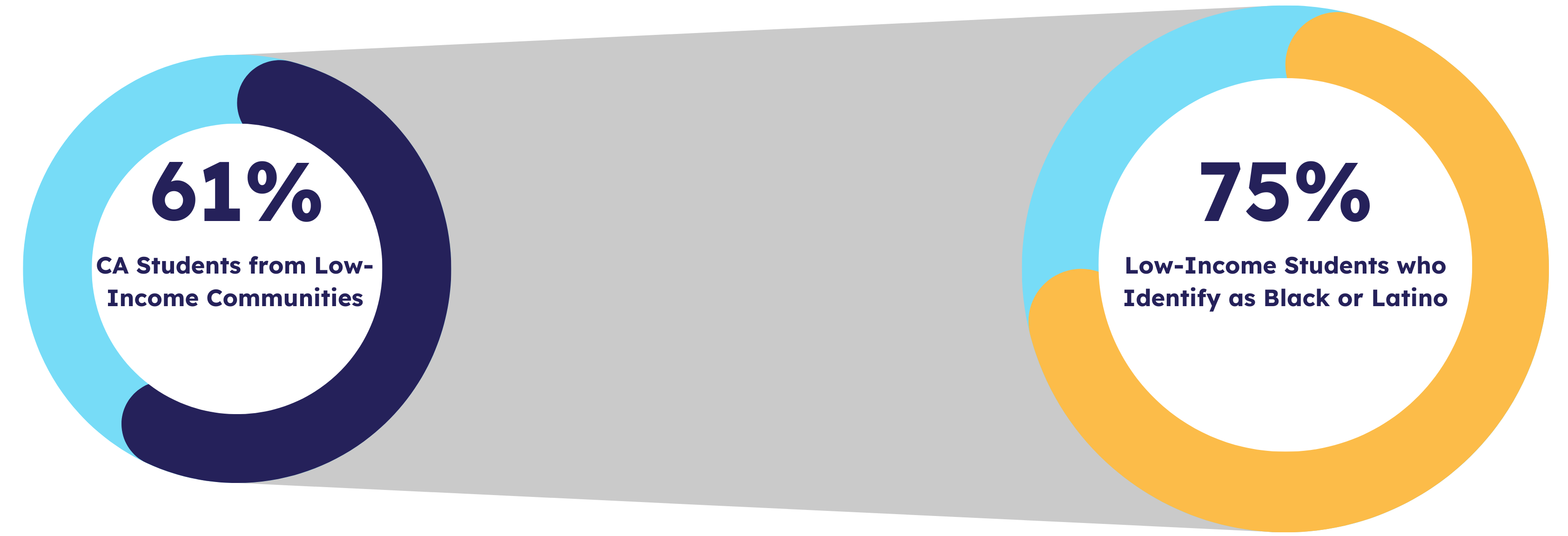
Every child deserves a future filled with opportunity.
We’re reshaping public education in California by changing state policy so that children from low-income communities receive high-quality educations.
The Triumph of AB 1454
Together, the EdVoice community advanced landmark legislation that will uplift reading outcomes for millions of students by bringing evidence-based reading instruction to all elementary schools. Experience the historic journey of AB 1454 from early hearings to the Governor’s signature.
California’s Achievement Gaps are Some of the Largest in the Nation 

The Challenge
Two Unequal Californias
We believe every child has the right to a high-quality education that prepares them for future college and career opportunities, but the unfortunate reality is that ZIP code and income still define future outcomes.
This perpetuates deep inequities in our current education system for the over 3.5 million students from low-income communities in California. On every meaningful measure of performance and readiness, children from low-income communities–who are disproportionately Black and Latino–fare far worse than their higher-income peers.
This is not a matter of ability, it’s a matter of access to early education, quality teachers, rigorous courses, early literacy and numeracy support, and supplemental supports–including enrichment activities, afterschool programs, and technology–as well as greater stability of their basic needs such as food, safety, and shelter.
As the 4th largest economy in the world, it is unacceptable that California isn’t prioritizing scalable solutions and adequate resources to solve this educational crisis.
This is not only an educational equity issue–it is a social, racial, and economic justice issue.
The Solution
Building Political Will
The only way to transform our public education system at scale is if elected leaders make big changes to state education policy in California. Key decisions such as school funding, curriculum, credentialing, staffing, school structure, and accountability are all made at this level.
The political will of elected officials, however, is often predicated upon special interest groups actively influencing elected officials to prioritize their cause. Planned Parenthood protects reproductive rights. Sierra Club stands for environmental justice. And the ACLU defends civil liberties.
But there has been no advocacy organization pushing for California’s leaders to pass legislation and regulations that will have the greatest impact on lifting up academic successes for children from low-income communities, until now.
EdVoice is reshaping public education to meet the needs of all students by:
-
Lobbying to influence the passage (or defeat) of high-impact education legislation
-
Building momentum to pass priority legislation by rallying partners, media, and grassroots support
-
Donating (PAC) to support leaders committed to uplifting academic outcomes for students from low-income communities
With proper implementation and accountability at the local level, policy can pave a long-lasting path toward educational equity.

Support Children from Low-Income Communities
Your contributions allow students to have a seat at the table in Sacramento.
Join The Movement
Sign up to receive important legislative updates and advocacy opportunities, education research reports, special events, and more!
